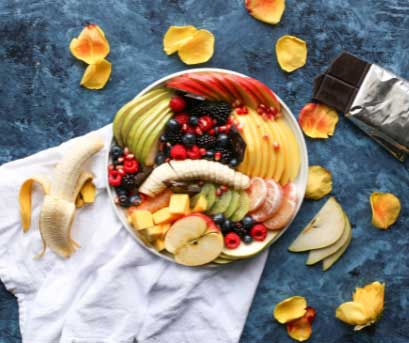I know you’ve heard that you can boost your immune system through healthy lifestyle changes? Probably lots of times, right? But could it really be that easy? The answer might surprise you.
As we head into winter and a potential new variant of Covid, booster shots are being recommended – but are there more proactive ways we can protect ourselves?
A healthy diet boosts immunity
A plant-based diet can have an impact on your immune system
Another more recent study looked at COVID-19 Illness Severity in the Elderly in Relation to Vegetarian and Non-vegetarian Diets
A retrospective study evaluated 509 patients who had been diagnosed with Covid-19 at a single medical centre between May 2021 and August 2021. For patients aged 65 years and older, Covid-19 symptom severity was statistically significantly and inversely associated with the adherence to a vegetarian diet. Moreover, subgroup analysis results showed that older covid patients and those with a non-vegetarian diet had a higher risk of contracting critically severe covid.
And lastly, one very interesting study conducted on front-line healthcare workers during the pandemic
Why do these diets make a difference?
Well… So all of these studies had potential biases and pitfalls- as all studies do, especially when there’s not been enough time or large enough populations to see proper long term effects – and while it feels like forever(!!) we’re not even three years into this pandemic. The studies above have been observational and relied on patient recollection, and no randomised-controlled trials have been published to date. RCT’s are the “gold standard” and in the absence of these most researchers will say the evidence is not sufficient to make a conclusive (or as conclusive as science ever gets) call. Personally though, I do still find this evidence compelling and the potential benefits far outweigh any reason not to try leaning in that direction. So we’re not looking at vegan, vegetarian or pescatarian diets as the cure all to save us, and if you’re at risk you should absolutely still be wearing a mask in crowded places.
But as I mentioned in the beginning – we already know that healthy plant-based diets are beneficial for reducing many conditions, including those which may put us at a higher risk for severe covid infections. Of course, I want to highlight that I’m referring to healthy plant-based diets, you can have a junk-food plant-based diet and have poor health due to consuming far too many processed foods.
We know that healthy plant-based diets are rich in nutrients, especially phytochemicals (polyphenols, carotenoids), vitamins and minerals, all of which are important for a healthy immune system, and fish are an important source of vitamin D and omega-3 fatty acids, both of which have anti-inflammatory properties. So in increasing the volume of plant-based ingredients we can help ourselves get healthier (and if that helps reduce risk of severe covid infections- then that’s even better news!)
So what can you do to help support your immune system?
- Add a variety grains such as rice, quinoa, pearl barley and buckwheat to your main meals, don’t always go for the one you’re used to.
- Add fruit whenever possible – as a snack, dessert, and whenever you’re feeling peckish.
- Eat vegetables with lunch and dinner – it doesn’t matter if they are raw, cooked, steamed or air-fried – however you enjoy eating them do that
- Keep legumes such as beans in the pantry, but more importantly keep them in mind and add lentils alongside your grains, or beans into soups or casseroles.
And of course there’s lots more to do, including reducing your sugar intake, getting a good nights’ sleep, getting enough exercise and spending time outside, drinking plenty of water, and using herbal medicine to support your body.
As ever, if you feel you need extra support in incorporating these changes into your life, I’m here!
Maya x



